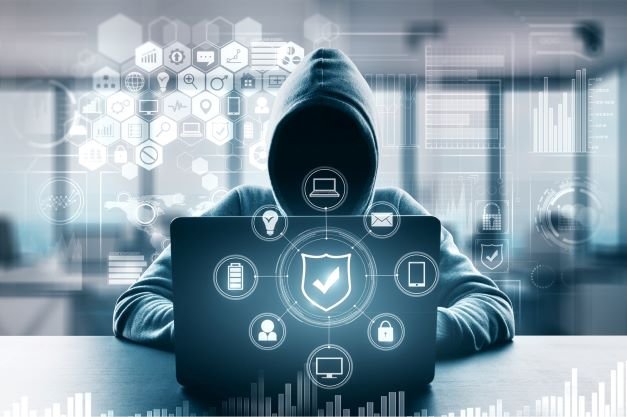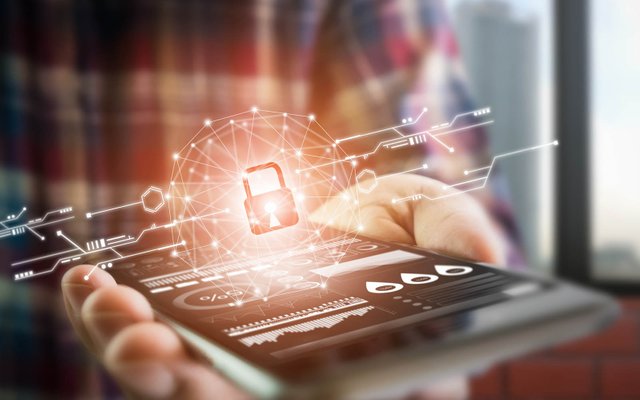Avoid having your info hacked.
Protecting your data from hacking is essential to maintain your privacy and security online. Here are some tips to help keep your data safe:
Use strong and unique passwords: Avoid using common or easily guessable passwords such as "password" or "123456." Use a mix of upper and lower case letters, numbers, and special characters to create a strong password. Also, use a different password for each account to prevent hackers from accessing all your accounts if one password is compromised.
Enable two-factor authentication (2FA): 2FA adds an extra layer of security to your accounts by requiring a second form of authentication, such as a code sent to your phone or email. This can help prevent unauthorized access to your accounts.
Keep your software up to date: Make sure you regularly update your operating system, web browser, and antivirus software to ensure you have the latest security updates.

Use a Virtual Private Network (VPN): A VPN encrypts your internet connection, making it more difficult for hackers to intercept your data. It's especially important to use a VPN when using public Wi-Fi networks.
Be cautious of suspicious emails and messages: Phishing emails and messages can trick you into revealing your login credentials or downloading malware. Be cautious of messages from unknown senders and avoid clicking on suspicious links.
Back up your data: Regularly back up your important data to an external hard drive or cloud storage service. This way, if your data is compromised or lost, you can easily recover it.
By following these tips, you can help protect your data from hacking and maintain your online privacy and security.
here are some additional tips to help protect your data from hacking:
Use reputable security software: Install and use reputable antivirus and anti-malware software to help detect and prevent malicious software from infecting your devices.
Be careful of public Wi-Fi networks: Public Wi-Fi networks can be a security risk as they may not be secure and could be monitored by hackers. Avoid using public Wi-Fi networks for sensitive activities such as online banking or entering personal information.
Limit your personal information online: Be cautious about sharing personal information online, such as your address, phone number, or social security number. Avoid posting personal information on social media or other public forums.
Check for secure connections: When entering sensitive information such as login credentials or payment details, make sure the website is using a secure connection. Look for the padlock icon in the address bar and make sure the website address starts with "https."
Monitor your accounts: Regularly monitor your accounts for any suspicious activity. Report any unauthorized access immediately to your bank or credit card company.
Be wary of downloads: Only download files from reputable sources and avoid downloading files from unknown or suspicious websites or emails.
By following these additional tips, you can help ensure the safety and security of your personal data and reduce the risk of hacking.
Use a password manager: Password managers can help you generate and store strong and unique passwords for each of your accounts. This makes it easier to maintain secure passwords without having to remember them all.
Use encryption: Encryption can help protect your data by encoding it so that only authorized parties can access it. Consider using encryption software or services for sensitive files and data.
Be cautious of social engineering: Social engineering is a tactic used by hackers to trick people into revealing sensitive information or performing actions that could compromise their security. Be cautious of emails or messages that ask for personal information or that seem too good to be true.
Use privacy settings: Adjust the privacy settings on your social media accounts and other online profiles to limit the amount of personal information that is publicly available.

Disable remote access: Make sure that remote access to your computer or other devices is disabled or only enabled for trusted parties.
Use strong security questions: When setting up security questions for your accounts, avoid using information that could easily be found or guessed, such as your mother's maiden name. Instead, use more obscure questions or create your own unique security questions.
By implementing these additional tips, you can help protect your data from hacking and maintain your online privacy and security.
Keep your devices physically secure: Keep your devices physically secure by using a lock screen password, locking your laptop when not in use, and avoiding leaving your devices unattended in public places.
Be careful of USB drives: Be cautious when using USB drives from unknown sources. USB drives can contain malware that can infect your devices when plugged in.
Monitor your credit reports: Regularly monitor your credit reports for any suspicious activity or accounts that you did not open.
Educate yourself: Stay up to date on the latest cybersecurity threats and educate yourself on best practices for protecting your data. Be wary of phishing scams, social engineering tactics, and other common hacking techniques.
Consider using biometric authentication: Consider using biometric authentication such as fingerprint or facial recognition to secure your devices and accounts.
Enable device tracking: Enable device tracking on your devices so that you can locate them if they are lost or stolen.
By following these additional tips, you can help protect your data from hacking and maintain your online privacy and security.